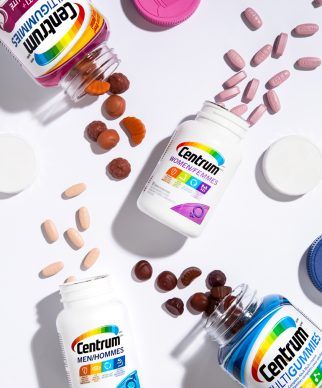
In today’s fast-paced world, it can be challenging to maintain a balanced diet that meets all of our nutritional needs. This is where multivitamins come in handy – they are designed to supplement our diet and ensure we get essential nutrients that might be lacking. However, with the plethora of options available in stores and online, it can be overwhelming to choose the right multivitamin for your needs. In this article, we will guide you through the process of selecting the perfect multivitamin.
Determine Your Specific Nutritional Needs
Everybody has unique nutritional requirements based on factors such as age, gender, lifestyle, and existing health conditions. Therefore, before purchasing a multivitamin, it’s crucial to determine your specific nutritional needs. If you have any pre-existing medical conditions or take medications, it’s advisable to consult with your healthcare provider, as they can provide valuable insights into which nutrients you may be lacking.
Identify Essential Nutrients
Once you have a clear understanding of your nutritional needs, identify the essential nutrients you should prioritize. For example, if you are a vegetarian or vegan, you may need a multivitamin that includes vitamin B12, which is mainly found in animal-based products. Pregnant women might require a multivitamin formulated with additional folic acid and iron. By knowing which nutrients are important to you, you can narrow down your options and make an informed choice.
Choose Recognized Brands
When it comes to multivitamins, quality matters. It is essential to choose a reputable brand that is well-known for its commitment to producing safe and effective supplements. Look for brands that are certified by regulatory bodies such as the U.S. Food and Drug Administration (FDA) or meet international standards like ISO (International Organization for Standardization). These certifications ensure that the products have undergone rigorous testing to meet specific quality standards.
Read Ingredient Labels
Another crucial step in selecting the right multivitamin is to read the ingredient labels carefully. Look for vitamins and minerals that reflect your specific nutritional needs. Additionally, ensure that the multivitamin does not contain any allergens or ingredients that you might be sensitive to. If you have any dietary restrictions or allergies, this step is particularly important.
Avoid Excessive Dosages
It’s important to remember that excessive intake of certain vitamins and minerals can be harmful. While some nutrients are water-soluble and generally safe in higher doses (such as vitamin C), others can accumulate in the body and lead to toxicity. Pay attention to the recommended daily intake levels and avoid multivitamins that offer mega-doses of particular nutrients unless specifically recommended by your healthcare provider.
Consider Form and Absorption
Multivitamins come in various forms, including tablets, capsules, gummies, and liquids. Consider your personal preference and any factors that may affect absorption. For example, some individuals may have difficulty swallowing tablets, while others may prefer a chewable or liquid form for better absorption. Additionally, some multivitamins are designed to be taken with meals to enhance absorption, so keep this in mind when making your selection.
Price vs. Quality
While cost is a factor we often consider when purchasing any product, it should not be the sole determinant in choosing a multivitamin. Cheaper options may not always meet the necessary quality standards or provide the desired nutrient levels. Aim for a balance between price and quality by selecting a multivitamin that fits within your budget while still offering the necessary nutritional support.
Seek Professional Advice
If you find it challenging to choose the right multivitamin or have specific health concerns, it’s always best to consult with a healthcare professional. They can evaluate your individual needs, suggest appropriate options, and address any questions or concerns you may have.
Conclusion
Selecting the right multivitamin involves understanding your individual nutritional needs, identifying essential nutrients, choosing reputable brands, reading ingredient labels, avoiding excessive dosages, considering form and absorption, and balancing price with quality. Remember, a multivitamin is not a substitute for a healthy diet, but it can be a valuable tool to fill nutritional gaps and support overall well-being.

